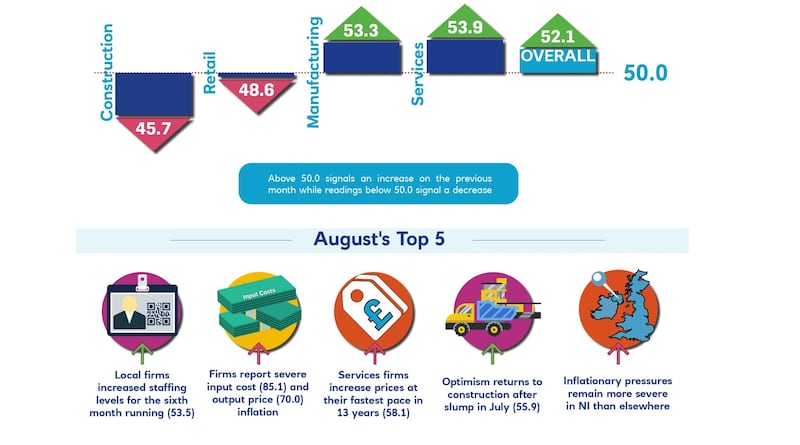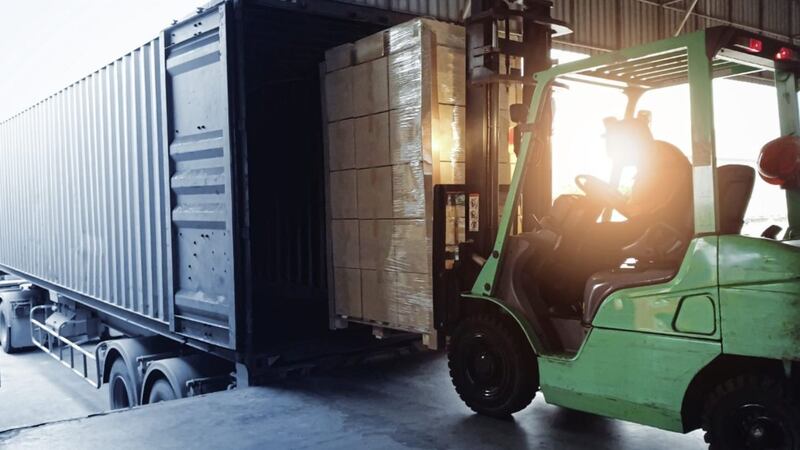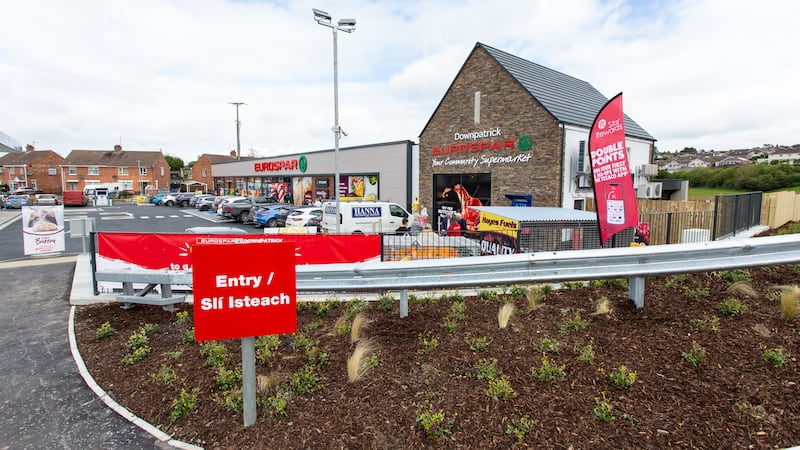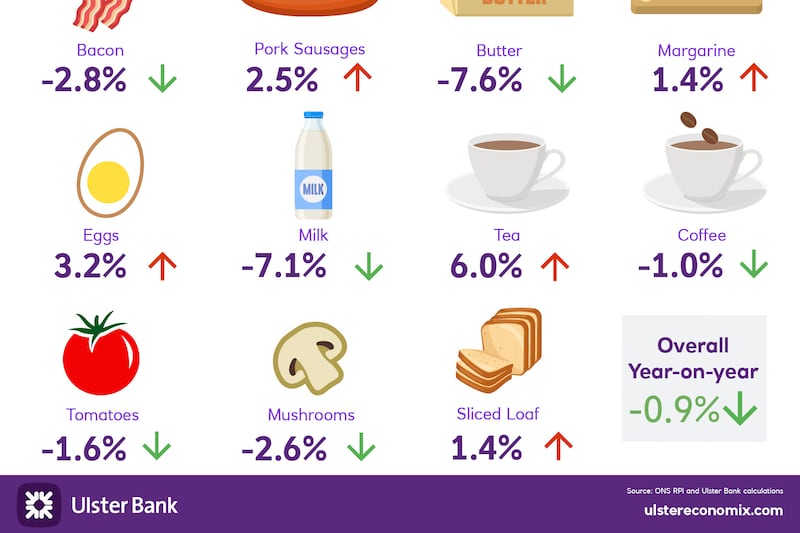THE post-lockdown recovery of the Northern Ireland economy lost momentum during August, a new business survey has suggested.
The latest Purchasing Managers Index (PMI) from Ulster Bank indicated that while business activity continued to grow last month, the pace of growth within the private sector was the slowest in the past five months.
Compiled by IHS Markit for Ulster Bank, the monthly survey is based on the experiences of 200 private businesses from across the north’s manufacturing, construction, retail and services sectors.
The report showed that business costs and selling prices continued to rise at a near record pace last month.
Ulster Bank’s chief economist Richard Ramsey said the PMI appeared to flag up a two-speed recovery going on within the private sector, with construction and retail performing worse than Northern Ireland’s manufacturing and services sectors.
“Manufacturing and services firms saw some loss of momentum in August but still chalked up reasonable rates of growth in output and orders while staffing levels continued to rise at a solid pace,” said the economist.
“But retailers joined construction in contraction territory, with falling sales and orders. Hiring within retail though continued last month.”

The rate of job creation remained solid during August, albeit slightly softer than July.
The fastest pace of job creation was reported within manufacturing.
But Mr Ramsey said the issue of inflationary pressures and lengthening supplier delivery times was once again apparent in the August report.
“Within the UK, Northern Ireland continues to report the steepest rises in input costs, with local firms raising the prices of their goods and services at faster rates than any other region.
“Price pressures linked to raw materials, fuel, freight, wages and Brexit continued to be cited by survey respondents,” he said.
“Inflationary price pressures in August eased only marginally relative to their recent record highs, although services firms raised their prices at the fastest pace in 13 years.”
Nevertheless, the survey showed a growing sense of optimism for businesses considering the year ahead, with firms anticipating further improvements in demand alongside the lifting of Covid-19 restrictions.
The most apparent rebound in confidence came from construction firms.
“This follows the Finance Minister’s announcement that new and existing public sector contracts will make allowances for inflationary prices and supply-chain disruption,” said Mr Ramsey.
Manufacturers and services firms remained very optimistic about their future activity, with retail the only sector anticipating sales to be lower this time next year.
“In the meantime, firms will continue to grapple with inflationary challenges, supply chain disruption, skills shortages and adapting to Brexit,” said the economist.
“But as we saw last week, increased taxation in 2022 will further add to businesses’ mounting cost burden.”







